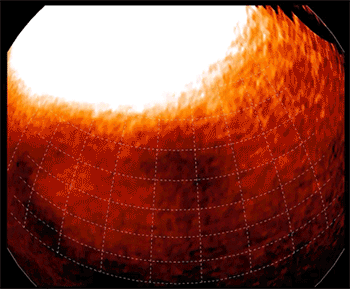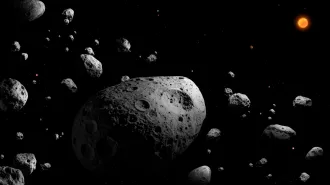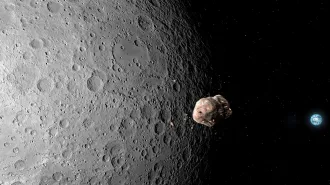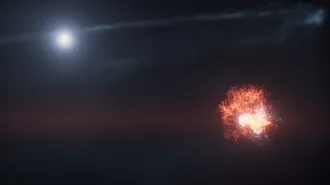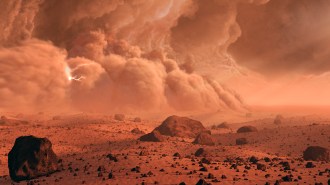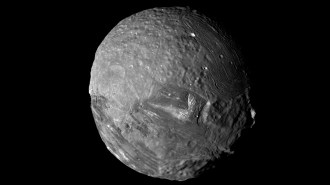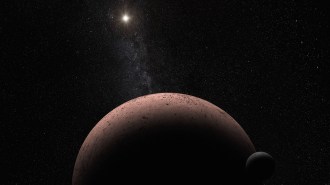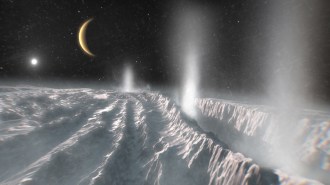Jupiter’s Great Red Spot has company. Meet the Great Cold Spot
Aurora may fuel colder mark in planet’s northern atmosphere
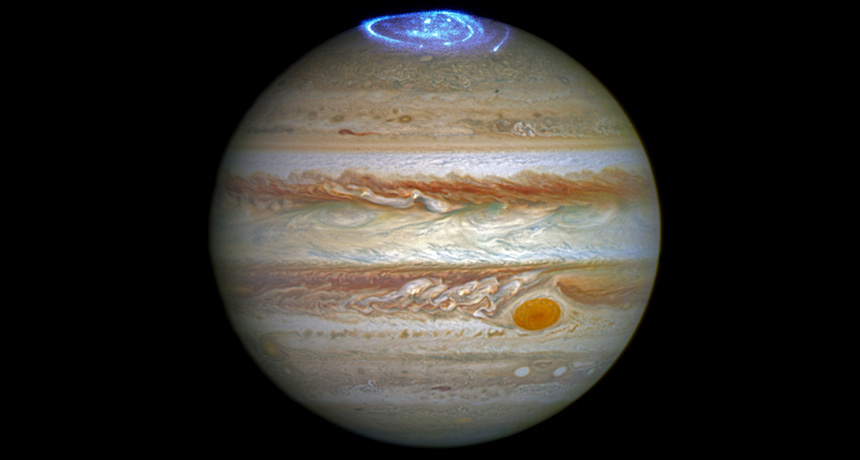
SPOTTED Jupiter’s northern aurora, shown in this Hubble Space Telescope image, may help generate the newly detected “Great Cold Spot” in the planet’s atmosphere.
J. Nichols/University of Leicester, NASA, ESA
